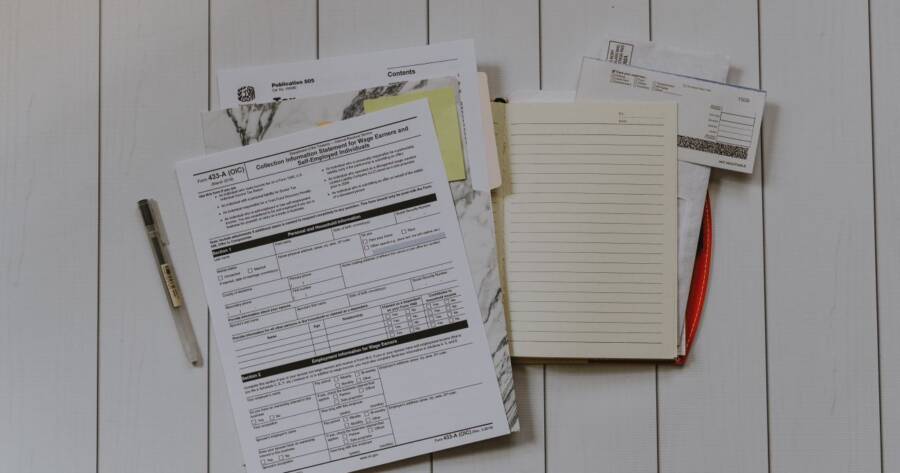The Internal Revenue Service, better known as the IRS, has a hand in many of the ways employment and income tax collection function in the United States. In order to ensure all income is accurately documented for reporting purposes, there are a number of IRS forms used in the process of hiring and onboarding employees. Which forms are most influential depend on employment status based on both citizenship and job functions. There are three IRS employment forms most people need to know about, including the W-4, W-9 and I-9.
USCIS Form I-9
Most citizens or non-citizen workers starting at a new job in the United States are required to fill out Form I-9. This IRS employment form is used to verify identity and employment eligibility, and it’s generally required prior to commencing any job tasks.
Despite its importance in the payroll tax process, Form I-9 is not actually an IRS form. Instead, it’s provided by the Department of Homeland Security as a part of U.S. Customs and Immigration Services. However, it’s given to the IRS while processing paperwork for new employees.
Unlike most IRS employment forms that only require a signature by the employee or, if underage, a parent or guardian, I-9 forms require an employer signature as well.
Employees must also provide information that includes a full legal name, contact information, Social Security Number (SSN) or Taxpayer Identification Number (TIN) and proof of eligibility to work. Acceptable documents typically include things such as a U.S. passport, driver’s license, Social Security card or green card. While the basics are now offered as online forms for most employees at most companies, procurement of proof of citizenship is still largely handled in person.
There are some exceptions pertaining to I-9 verification. Under the following circumstances, Form I-9 is not required:
- Employees hired before November 6, 1986 who are continuing in the same employment position
- Individuals hired as casual workers within a domestic home on a sporadic or irregular basis
- Independent contractors or contract employees who are employed by an intermediary, such as a temp agency
- Workers not physically located in the U.S.
IRS Form W-4
IRS Form W-4 is formally known as the Employee’s Withholding Certificate. This form is required for any wage-paying position in which federal income taxes are withheld and workers are classified as employees for IRS purposes. W-4 employees will receive a W-2 with taxes withheld and other pertinent information at the conclusion of each year.
Income tax is very individualized. How much tax is owed to the IRS in totality depends on many factors, including potential deductions against income tax and total household income. This means that what is withheld isn’t consistent from one person to another. Form W-4 is used to determine proper federal income tax calculations based on personal circumstances.
Form W-4 requires basic personal information, including contact details and an SSN or TIN. In addition, employees must fill out three other sections in order to determine the most accurate tax withholding:
- Multiple Jobs: This section takes into account additional income sources, like a spouse’s job, that may contribute to income tax owed. Employees can utilize the online estimator or multi-job worksheet to determine how best to proceed.
- Dependents: How many dependents a taxpayer has can alter taxable income. In this section, employees can factor in the influence of children or other dependents in overall calculations.
- Other adjustments: The other adjustments section is optional and applies to employees with other factors to consider, such as other income sourced to be included in taxable income. This can also include things like deductions outside of the standard deduction and any extra withholding desired.
Employees are always permitted to make changes to W-4 forms as circumstances fluctuate. This may be suggested when significant changes to household income occur, such as getting married or starting a second job.
IRS Form W-9
IRS Form W-9 is similar to Form W-4 but instead collects tax information for contractors and other self-employed individuals who are not classified as employees.
Unlike Form W-4, which can be customized based on personal circumstances and tax withholding expectations, Form W-9 is a lot more straightforward. Individuals simply enter their name, contact information and taxpayer identification number, then sign where indicated. There is no tax withholding to worry about in a contracting situation, hence the less complex process. Instead, taxpayers are responsible for determining their own tax obligations and are encouraged to save accordingly.
At the start of a new year, W-9 workers receive a Form 1099 that states gross earnings to be used when filing income taxes.
The Bottom Line on IRS Tax Forms
IRS employment forms can seem overwhelming, but they’re an important part of hiring and income tax in the United States. Taking time to understand what these important forms mean and how they can affect both employment and income tax collection is central to filing taxes.






